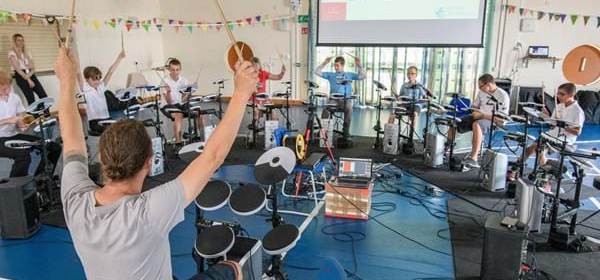A longitudinal study in Japan has revealed that participation in extracurricular activities in both music and visual arts is positively associated with improvements in general academic performance.


A longitudinal study in Japan has revealed that participation in extracurricular activities in both music and visual arts is positively associated with improvements in general academic performance.

According to a team of researchers led by Florida International University, listening to music while studying may help some children with attention deficit hyperactivity disorder (ADHD).

In 2016, researchers in Marseille, France tested the efficacy of a specially-designed Cognitivo-Musical Training (CMT) method for children with dyslexia.

Drumming for one hour a week can help children diagnosed with autism and supports learning at school, according to a study published in 2018.

Researchers from the University of Dundee have evaluated the impact of the Big Noise Douglas (BND) programme in the city and found that ‘BND is having positive impacts on children, families and the community’.

Anita Holford, co-editor of Music Education Works, looks at eight ways music can support young people’s wellbeing and learning.

This research on why beat synchronisation and language processing and reading skills are connected can only strengthen music education teaching and advocacy.

Researchers from the University of Geneva and Université de Lausanne in Switzerland have found that formal, intensive, musical instrument training in a group setting in primary schools can enhance their cognitive development.

A School of Music professor set out to disprove the idea of a link between a students’ musical and mathematical achievement. But the results of his study proved otherwise.

Neuroscientists in Chile have found new evidence that learning to play a musical instrument may be good for the brain.

The impact of an ArtsTrain music making programme has been highlighted in a new evaluation report.

Small, rural primary school at Yahl in South Australia transformed by music.